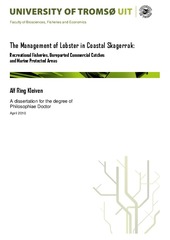Compositional differences in soybeans on the market: glyphosate accumulates in Roundup Ready GM soybeans
Permanent link
https://hdl.handle.net/10037/5885Date
2014Type
Journal articleTidsskriftartikkel
Peer reviewed
Abstract
This article describes the nutrient and elemental composition, including residues of herbicides and pesticides, of 31 soybean batches from Iowa, USA. The soy samples were grouped into three different categories: (i) genetically modified, glyphosate-tolerant soy (GM-soy); (ii) unmodified soy cultivated using a conventional ‘‘chemical’’ cultivation regime; and (iii) unmodified soy cultivated using an organic cultivation regime. Organic soybeans showed the healthiest nutritional profile with more sugars, such as glucose, fructose, sucrose and maltose, significantly more total protein, zinc and less fibre than both conventional and GM-soy. Organic soybeans also contained less total saturated fat and total omega-6 fatty acids than both conventional and GM-soy. GM-soy contained high residues of glyphosate and AMPA (mean 3.3 and 5.7 mg/kg, respectively). Conventional and organic soybean batches contained none of these agrochemicals. Using 35 different nutritional and elemental variables to characterise each soy sample, we were able to discriminate GM, conventional and organic soybeans without exception, demonstrating ‘‘substantial non-equivalence’’ in compositional characteristics for ‘ready-to-market’ soybeans.
Description
This article is part of Marek Cuhra's doctoral thesis which is available in Munin at http://hdl.handle.net/10037/7869
Publisher
ElsevierCitation
Food Chemistry 153(2014) s. 207-215Metadata
Show full item recordCollections
The following license file are associated with this item:
Related items
Showing items related by title, author, creator and subject.
-
Levendelagret rødspette (Pleuronectes platessa) – velferd og kvalitet
Pettersen, Ingrid Marie; Aaknes, Vilde Synnøve (Master thesis; Mastergradsoppgave, 2023-05-15)I dag er verdikjeden for fisk og skalldyr bygget opp rundt utnyttelse av et fåtall arter som kan fanges i store volum og med høy markedsverdi. Bruk av lite eller ikke utnyttede marine ressurser kan være en bærekraftig tilnærming for å innfri fremtidige krav og etterspørsel til fiskekonsum. Rødspette (Pleuronectes platessa) er den viktigste flatfisken i volum og verdi i europeiske fiskerier. Både ... -
The management of lobster in coastal Skagerrak : recreational fisheries, unreported commercial catches andmarine protected areas
Kleiven, Alf Ring (Doctoral thesis; Doktorgradsavhandling, 2010-09-30)The implementation of four experimental lobster reserves in Norway in 2006 highlighted a set of important questions regarding lobster management. This thesis presents a study on the management and fishery of the European lobster (Homarus gammarus) in Skagerrak. Firstly, the implementation process of the lobster reserves was analysed. It revealed that local stakeholders, such as recreational fishers, ... -
Granularity and its importance for traceability in seafood supply chains
Karlsen, Kine Mari (Doctoral thesis; Doktorgradsavhandling, 2011-08-26)The purpose of this thesis was to study granularity and its importance for traceability in seafood supply chains. The following hypothesis was applied in this thesis: The implementation of traceability of seafood is affected by the granularity level of the traceable units. Three sub-tasks were carried out to test the hypothesis: 1) identify critical traceability points (CTPs) of seafood products, ...


 English
English norsk
norsk


